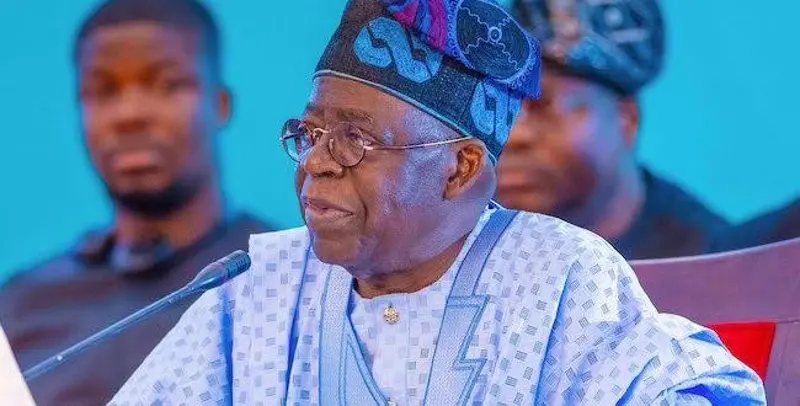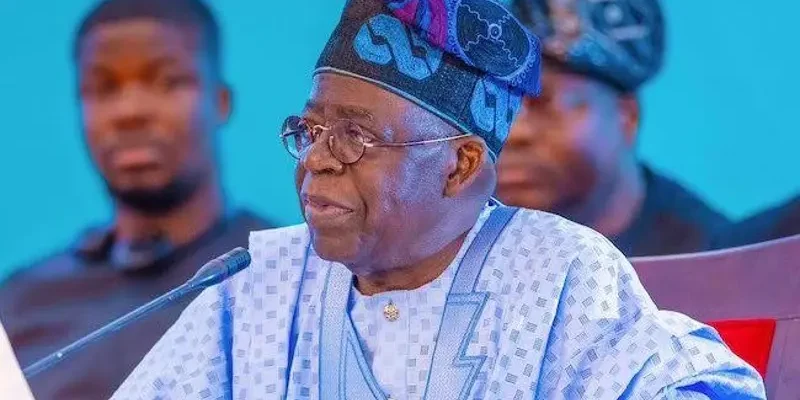
A coalition of civil society organizations, the Socialist Liberation Movement (SLM), has expressed support for President Bola Tinubu’s economic policies and development initiatives, following criticism from former Central Bank Governor and Emir of Kano, Muhammadu Sanusi II.
Sanusi, speaking at the 21st Chief Gani Fawehinmi Memorial Lecture in Lagos on January 15, 2025, criticized Tinubu’s administration for its handling of the Nigerian economy. He argued that key policies were being poorly implemented and that the government lacked credible individuals to effectively communicate its economic agenda to the public.
However, in a press briefing on Monday in Abuja, the SLM coalition countered Sanusi’s assertions, praising the administration’s proactive approach to Nigeria’s economic challenges. Dr. Agabi Emmanuel, the convener of the coalition, highlighted several key policies introduced by the Tinubu government, which the group believes are beginning to yield positive results for Nigerians.
The coalition lauded initiatives such as the removal of fuel subsidies and the floating of the Naira, calling these steps essential in restoring confidence in the nation’s economy. It also pointed to the establishment of the Presidential Economic Coordination Council (PECC) and the Economic Management Team Emergency Taskforce (EET), which have strengthened Nigeria’s economic governance structures.
Furthermore, the SLM emphasized the administration’s focus on infrastructure development, including investments in roads, railways, and energy projects through public-private partnerships. These initiatives, the coalition believes, will contribute to reducing transportation costs and improving market access across the country.
The coalition also noted advancements in Nigeria’s digital economy, citing the Digital Nigeria Program as an example of the government’s efforts to expand broadband access and support tech startups. This initiative is seen as a key driver of innovation, financial inclusion, and job creation.
Additionally, the SLM pointed to programs aimed at enhancing food security and agricultural productivity, such as the Food Security and Agricultural Mechanization Programme and the National Agriculture Growth Scheme-Agro-pocket, which it believes will reduce Nigeria’s reliance on food imports.
In terms of fiscal policy, the coalition praised the Tinubu administration for reducing inflation, stabilizing the foreign exchange market, and improving fiscal management. The coalition also recognized the government’s commitment to fostering a digital economy, with plans to train three million youths in digital technology and create one million new tech jobs.
The coalition further acknowledged the government’s health sector reforms, including the Health Sector Renewal Investment Initiative, which has attracted $2.2 billion in external financing, and the redesigned Basic Health Care Provision Fund (BHCPF). It also highlighted the National Health Insurance Authority Act, which aims to provide universal health coverage for all Nigerians.
In the education sector, the coalition noted several initiatives aimed at improving educational outcomes, including the “We Are Equal” campaign for inclusive education and skills development, as well as new policies on teacher training and the education of out-of-school children.
The SLM concluded by expressing confidence in President Tinubu’s leadership, asserting that his bold economic reforms and investments in critical sectors are setting Nigeria on a path toward sustainable economic growth and development. The coalition believes these efforts will create a better Nigeria for current and future generations.
“President Bola Tinubu has embarked on a promising trajectory towards translating our hopes and aspirations into tangible realities,” the coalition stated, “demonstrating a commitment to transformative governance and economic development.”

Comments